
Member Login
- Forgot your password? Please enter your email address below and we will send you a link to reset your password. If you do not receive an email please call MTA NSW.
New $250 Travel Card to Assist Regional Seniors with Fuel Costs
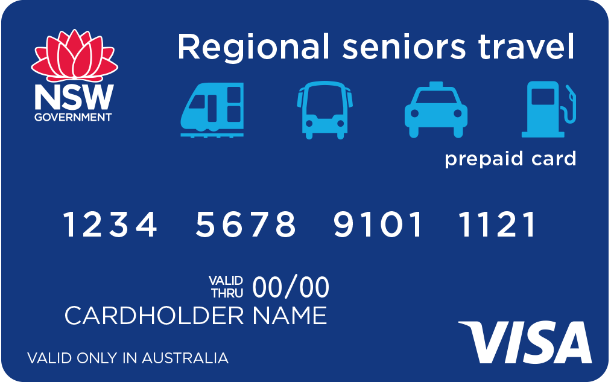
The prepaid Visa card provides seniors with $250 to ease the burden of travel costs and assist them in getting to and from essential services. The card is making it easier and more affordable for seniors to remain connected with family and friends.
Seniors are using their regional seniors travel card to pay for:
- pre-booked NSW TrainLink train and coach services.
Seniors can check their card balance or transaction history by phone or online.
After a cardholder has put fuel in their car, a member of staff or the cardholder swipes the card in a point-of-sale terminal. The cardholder selects ‘credit’ (not ‘savings’ or cheque’) and enters their PIN.
The regional seniors travel card has a magnetic strip on the back. It doesn’t contain a chip which means it can’t be inserted into a point-of-sale terminal or used for contactless payments including tap and go.
The regional seniors travel card has been restricted for use at Australian retailers based on their merchant category code. Merchant category codes are used to classify businesses by the type of goods or services they provide. The card will work at retailers or service providers using travel-related merchant category codes. This includes merchant category codes for fuel 5983 and service stations (with or without ancillary services) 5541.
If service station owners are not sure which merchant category code they are using they can check with their merchant acquirer or payments provider.
To be eligible seniors must be:
- an age pensioner with a valid Pensioner Concession Card issued by the Department of Human Services or Department of Veterans’ Affairs; or
- a Commonwealth Seniors Health Card holder – card issued by the Department of Human Services Affairs or Department of Veterans’ Affairs; and
- living in regional NSW outside Sydney, Newcastle and Wollongong.
The regional seniors travel card was a 2019 election commitment by the NSW Government.
Seniors can apply at Service NSW:
- online at service.nsw.gov.au
- call 13 77 88
- visit a Service NSW Service Centre.
FOR FURTHER INFORMATION
More information is available at www.service.nsw.gov.au
%20(2).jpg)
The Australian Heavy Vehicle Repairers Association (AHVRA) represents the heavy vehicle accident repair industry at a national level.
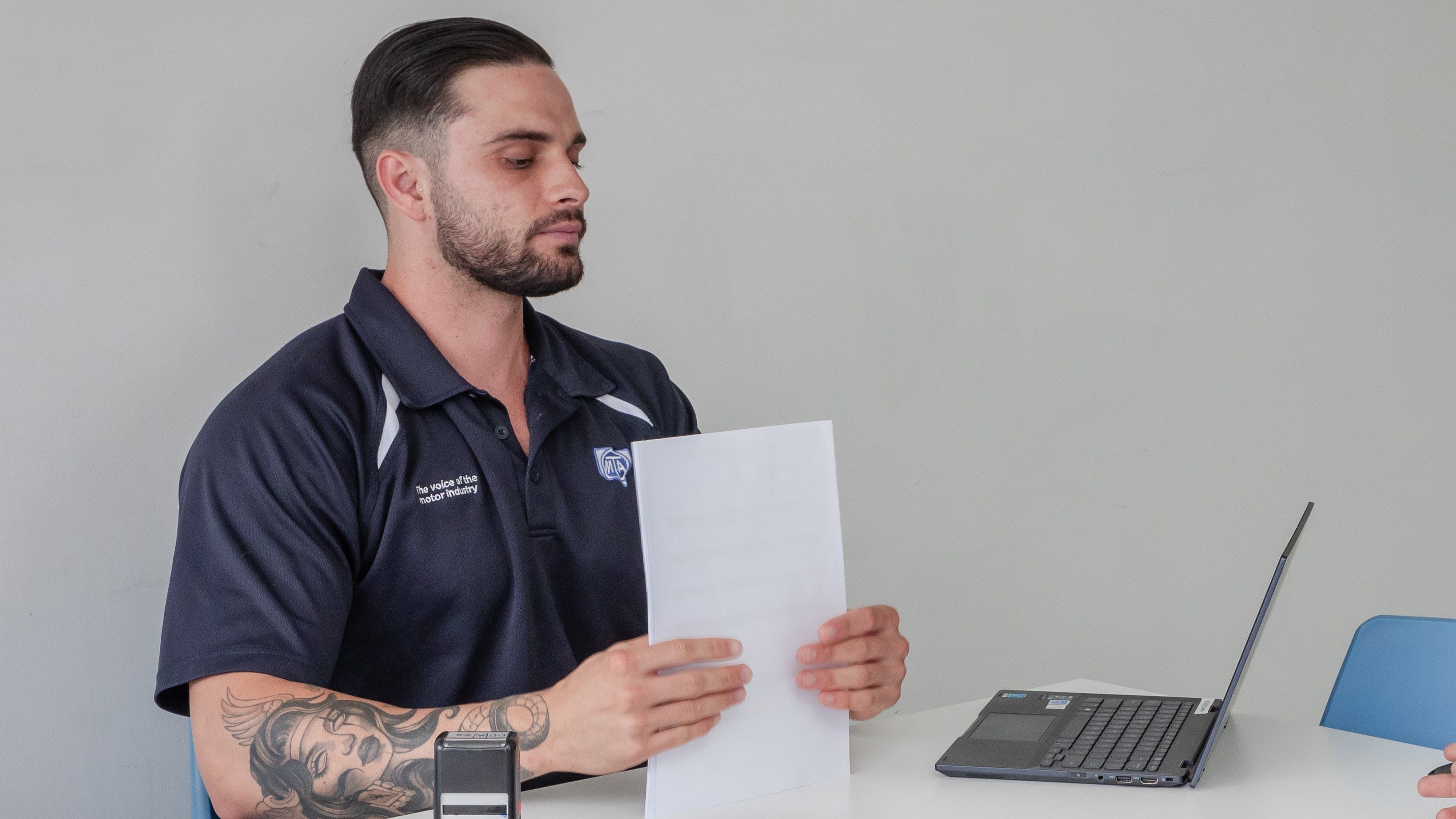
Created by MTA NSW, the Employment Relations Information System (ERIS) is a web based interactive employment relations system.
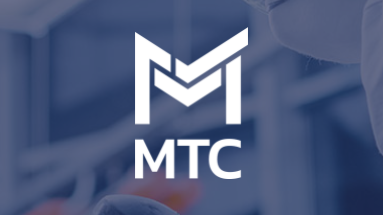
Motor Trades Cares (MTC) provides access to free industry WHS and worker’s insurance information and topical publications, webinars, management system resources, including policies, procedures and supporting checklist and forms.
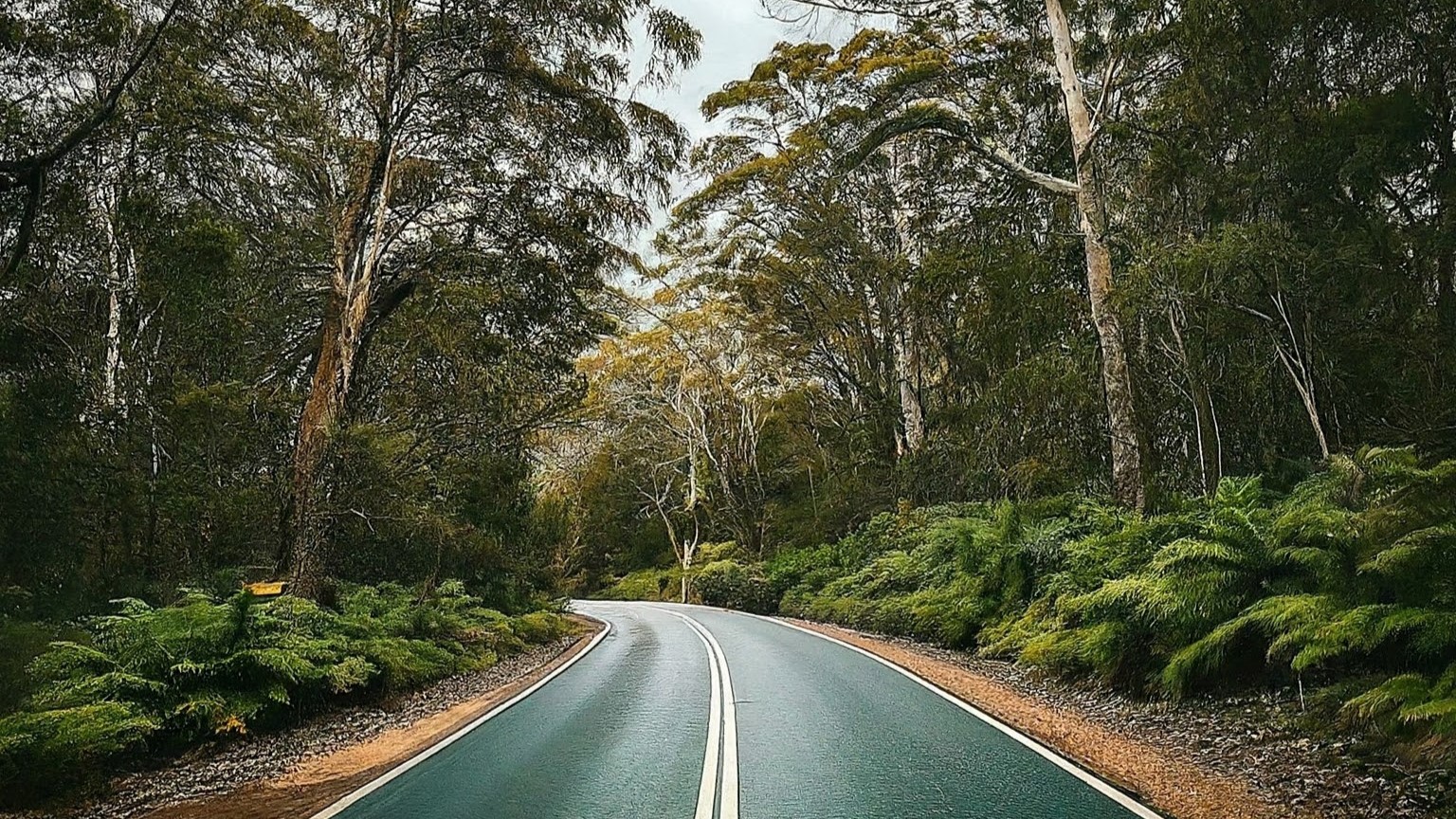
Green Stamp
Green Stamp is an environmental program that aims to help businesses achieve environmental compliance.
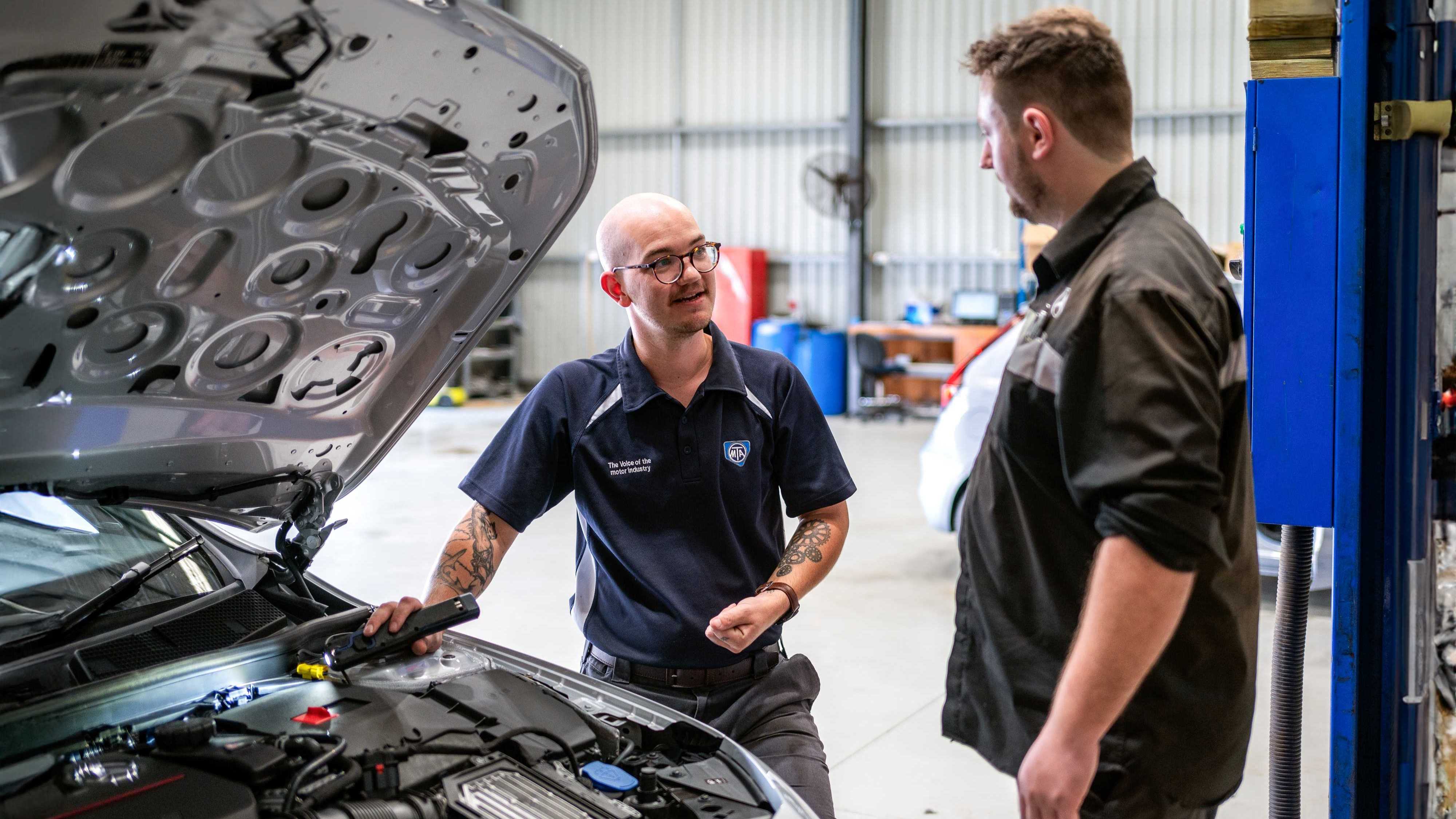
MTA Training
MTA Training delivers innovative and flexible, industry focused training and prides itself on producing quality outcomes.
.jpg)
The Service Station Association (SSA) is a division of MTA NSW representing businesses within the petroleum industry.

Get in touch with us today! Call us on 02 9016 9000
Apply for the NSW Gas Rebate (on-supply and bottled gas customers)
Eligibility and application details for the gas bill rebate for on-supply customers.
Introduction
The NSW Gas Rebate helps eligible concession cardholders pay their natural gas or bottled Liquefied Petroleum Gas (LPG) bills.
The NSW Gas Rebate is $121 per embedded network (on-supply) or bottled LPG household, per financial year.
If you live in an embedded network (on-supply) or if you buy or refill bottled LPG, you can apply for the rebate.
If you are a retail (on-market) customer, you can apply for the NSW Gas Rebate (retail customers) .
Note: Embedded network ('on-supply') means your natural gas is supplied by an embedded network – such as in a residential community, retirement village or strata scheme – and you receive your gas bill or invoice from the strata manager or community/village operator. If you’re not sure whether you're an on-supply customer, contact the gas provider named on your gas bill.
Eligibility
You may be eligible if you live in NSW and all of the following apply:
- you have a natural gas account for your home in NSW or use more than 45 kg/88 L bottled LPG for basic household needs
- you're the account holder (the account and bill must be in your name)
- Pensioner Concession Card issued by Services Australia or the Department of Veterans' Affairs (DVA)
- Health Care Card issued by Services Australia, or
- Department of Veterans' Affairs Gold Card marked with either 'War Widow', 'War Widower Pension', 'Totally and Permanently Incapacitated' (TPI) or 'Disability Pension' (EDA).
Customers who are not eligible for this rebate:
- Commonwealth Seniors Health Card holders
- LPG customers who use 'SWAP&GO' BBQ bottles, or bottled gas less than 45 kg/88 L in mass
- gas hot water customers with usage measured in litres (L) – check your gas bill to see how your usage is measured
- customers billed for an unmetered gas service.
What you need
- your concession card details
- your bank account details (to receive your rebate)
- your name and address printed on it
- the most recent meter reading dates for your household (taken after 1 July in the current financial year and less than 3 months old)
- for bottled LPG customers, the bill must have been issued in the current financial year.
How to apply
- Check you meet the eligibility requirements .
- Select the 'Apply online' button.
- Follow the steps to apply for the rebate.
You'll receive a confirmation number and an email with details on what happens next.
If you're not able to apply online:
- Download and complete the NSW Gas Rebate Application Form On-Supply Household – PDF .
- Attach a copy of your most recent gas bill/invoice.
- Post your application to NSW Energy Rebates, PO Box 435, Parramatta NSW 2124.
More information
- Embedded network (on supply) customers receive the rebate as a lump sum payment of $121 deposited into your bank account.
- they have been prepared from a branded invoice book
- the supplier does not have the capacity to provide printed invoices.
- For assistance in understanding your bill or invoice, please contact your energy provider.
- A household can only receive one NSW Gas Rebate each financial year.
- You can only receive the rebate for your principal place of residence.
- If you receive the NSW Gas Rebate, you may be eligible for the NSW Low Income Household Rebate for your electricity account.
- NSW Gas Rebate Application Form On-Supply Household – PDF
Translations
- NSW Gas Rebate Application Form On-Supply Household (العربية | Arabic) – PDF
- NSW Gas Rebate Application Form On-Supply Household (简体中文 | Chinese Simplified) – PDF
- NSW Gas Rebate Application Form On-Supply Household (繁體中文 | Chinese Traditional) – PDF
- NSW Gas Rebate Application Form On-Supply Household (فارسی | Farsi Persian) – PDF
- NSW Gas Rebate Application Form On-Supply Household (Ελληνικά | Greek) – PDF
- NSW Gas Rebate Application Form On-Supply Household (Italiano | Italian) – PDF
- NSW Gas Rebate Application Form On-Supply Household (한국어 | Korean) – PDF
- NSW Gas Rebate Application Form On-Supply Household (नेपाली | Nepali) – PDF
- NSW Gas Rebate Application Form On-Supply Household (Español | Spanish) – PDF
- NSW Gas Rebate Application Form On-Supply Household (Tiếng Việt | Vietnamese) – PDF
Related transactions
- Apply for the NSW Low Income Household Rebate (on-supply customers)
- Apply for the NSW Medical Energy Rebate (on supply customers)
- Apply for the NSW Family Energy Rebate (on supply customers)
Rate the information on the page
How can we help you today?
Popular searches.
- Contactless payments
- Routes and timetables
- Concessions
- School student travel
- Opal Travel app
- Tickets and Opal
- Ticket eligibility
- School students
School Drive Subsidy eligibility
The School Drive Subsidy is available in areas where there is limited or no public transport. The subsidy is intended to partly offset the cost of using a private vehicle to drive the eligible student all or part of the way to school.
If you already receive a school drive subsidy, you will need a different page. Login to the School Drive Subsidy Parent Portal if you want to:
- add another student
- update your details or travel requirements
- track your journeys and payments
Who's eligible for School Drive Subsidy?
School Drive Subsidy contributes to the cost of transporting a child by car to school or the closest transport stop.
To be eligible, your child must:
- be a resident of NSW, or an overseas student eligible for free government education
- be aged 4 years 6 months or older and enrolled full-time in school or TAFE (pre-school children are not eligible)
- live in an area where there is no public transport and more than the minimum distance to school (the minimum distance varies according to the year or grade the child is enrolled in)
Please also note:
You only need to submit a new application if you're applying for the School Drive Subsidy for the first time.
The application must be made by the student's parent or guardian (even if the student is aged 16 years or over).
If you need to update your details, go to the School Drive Subsidy Parent Portal and submit a change application.
Where public transport is available at the prescribed minimum distance from home, eligible students may also be entitled to a free school travel pass under the School Student Transport Scheme.
Students from Kindergarten-Year 6
- The distance to school exceeds 1.6 km (straight line distance) or is at least 2.3 km walking distance, and
- The distance to the nearest transport pick up point (where available) exceeds 1.6 km (straight line distance) or is at least 2.3 km walking distance.
Note: Pre-school children are not eligible for subsidised travel between home and school under the School Drive Subsidy.
Secondary school students Year 7 to Year 12
- The distance to school exceeds 2 km (straight line distance) or 2.9 km walking distance, and
- The distance to the nearest transport pick up point (where available) exceeds 2 km (straight line distance) or is at least 2.9 km walking distance.
TAFE students
are eligible if:
- They are under 18 years of age at 1 January of the year of application
- They are enrolled in a full-time TAFE course for a minimum of 16 hours per week
- They are not employed
- The walking distance from home to TAFE exceeds 3.2 km, and
- They attend the closest TAFE where enrolment is available.
Boarding school students
If no public transport is available, boarding school students are eligible for subsidised travel between the family home and school at weekends and school holidays. Trips may also be for various purposes during school time, including students attending a school event or sick students travelling home.
Students who board in town and attend a day school during term may also be eligible for subsidised travel between the family home and the place of boarding at weekends and school holidays.
- Students that are weekly boarders are entitled up to 22 trips per semester
- Students that are term boarders are entitled up to 9 trips per year
Journeying to school at the beginning of the week or term and journeying back home at the end of the week or term is counted as one overall trip for a boarding school student.
There is no subsidy cap on the distance travelled.
Learn how to apply online
NSW Budget: rebates up – Regional Seniors Travel Card axed
Article published 20 september 2023.
Subscribe to CPSA news
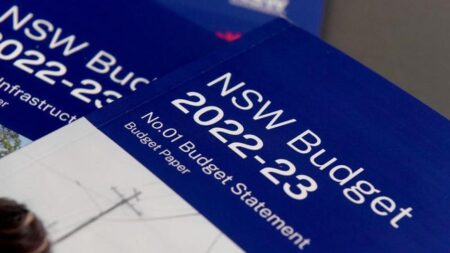
NSW Budget: rebates up - Regional Seniors Travel Card axed
Regional seniors travel card axed.
WITH the suspension of new applications for the Regional Seniors Travel Card on 7 July this year, it was pretty clear that the card would not survive the budget process, in its current form and maybe not at all.
The presentation of the NSW Budget yesterday confirmed this, or rather, the fine print did. Buried deep in the budget papers (Budget Paper 1, p138) the Regional Seniors Travel Card was allocated a budget of $36 million for the 2023-2024 financial year.
While $36 million is a lot of money, it’s not enough to run the Regional Seniors Travel Card for a year. In 2022–2023, when the card ran without restrictions, it cost the budget $102 million. In its first year of operation in 2021-2022, the card cost $98 million.
The NSW Government told CPSA in a letter that applications for the card had been suspended while Service NSW reviewed it. Cards in circulation were not affected. The reason for the review, the NSW Government told CPSA, was that the card was being used for purchases which had nothing to do with transport, “including tobacco and gambling products”.
Technically, this is where the card is still at. It’s under review and no new applications will be received.
However, CPSA wonders if this is a softly-softly way of axing the card.
The Regional Seniors Travel Card operates like a credit or debit card. This means that all the card management features available to credit and debit cards are available. These include the facility to record what types of purchases are made and the facility to block the card from being used to buy, let’s say, cigarettes and scratchies.
$36 million would be about one-third of the full annual cost of the card to the NSW Budget. Enough to cover purchases made using cards in circulation until they run out, mostly at some point during 2023-2024.
There might be optimists who will assume that the Regional Seniors Travel Card will be started up again in 2024–2025 as part of the 2024-2025 budget process. Their optimism is to be admired.
For all practical purposes, the Regional Seniors Transport Card has been axed, certainly for those people who became newly eligible for one, or whose old card expired on or after 7 July 2023, when applications were suspended.
The NSW Regional Seniors Travel Card has helped older people in regional, rural and remote areas of NSW to stay connected. The loss of this card will be felt keenly by regional seniors who are already struggling to make ends meet as living costs continue to climb.
Energy rebates up
While the Regional Seniors Card is all but gone, CPSA does welcome increases in NSW energy rebates. The Low-Income Household Rebate as well as the Medical Energy Rebate will go from $285 to $350. The Seniors Energy Rebate for self-funded retirees will rise from $200 to $250 and the Life Support Energy Rebate has also received a significant boost from $1,343 to $1,639.
It is currently unclear whether eligible customers living in places which have private ‘embedded’ energy networks will receive a similar increase, or how much that might be.
1,500 more social housing units
Also welcome is the NSW Government’s commitment to providing 1,500 additional social housing dwellings under the $610 million Commonwealth Social Housing Accelerator program.
This number will go nowhere near solving the social housing shortage, but it is more than has been achieved in recent years. A year ago, housing advocacy group Everybody’s Home calculated that constructing 25,000 social homes needed now would cost $12.9 billion.
The percentage of older people who own their own homes is declining and due to an undersupply of social housing, more people over 65 are experiencing housing insecurity in the private rental market.
Rates of homelessness amongst older people, particularly older women, continue to rise. Like many other advocacy organisations and charities, CPSA calls on the NSW Government to commit to resolving the housing crisis in NSW and to commit to building the social and affordable housing needed. This would also enable it to lower the eligibility age for the social housing priority list from 80 to 65.
Read CPSA’s 2023-24 NSW Budget media release here.
For more information please email our media contact at [email protected]
Stay up to date with CPSA news and media releases
Our regular email newsletter provides valuable insights and information on topics such as pension entitlements, healthcare, government policies, and more.
Subscribe to news
- Name * First name Surname
- All news emailed every Monday, Wednesday and Friday
- Weekly email digest
- Email This field is for validation purposes and should be left unchanged.
More than $140 million in NSW budget for regions to help with travel for medical care
The state government is set to almost double the rebates for people in regional areas who need to travel for medical treatment.
Key points:
- The boost in support comes after an inquiry into rural and regional health services
- The government said patients travelling for cancer treatment could expect to get back $5,365 on average
- A cancer charity welcomed the announcement, saying they will be able to help more people
It has allocated an extra $149 million in Tuesday's budget for the Isolated Patients Travel and Accommodation Scheme (IPTAAS).
The changes mean the rebate will increase from 22 cents to 40 cents per kilometre for patients who drive in their car more than 100 kilometres for treatment.
The subsidy for a one- to seven-day stay away from home will be boosted from the current $43-$60 to a $75 flat rate. And rising to a $120 flat rate when patients spend more than seven nights away.
The government said it means a person travelling for cancer treatment over a 12-month period will go from getting $2,931 back to $5,365 on average.
"What this announcement does is put families and people at the centre of this program to make sure they can get the access to services that they need," Minister for Regional Health Bronnie Taylor said.
The shortcomings of the scheme were raised in the parliamentary inquiry into rural and regional health services.
Earlier this year, it recommended the scheme should be reviewed as a "matter of priority".
Ms Taylor said the increase in funding directly relates to the findings.
"This has been a long-standing issue," she said.
The charity Can Assist, which provides assistance to cancer patients, welcomed the announcement.
"At Can Assist we deliver $2 million worth of assistance every year, about half of that is in travel and accommodation costs," the charity's Majella Gallagher said.
"So clearly IPTAAS hasn't been enough to help people."
Ms Gallagher said the extra funding will also allow charities to redirect their money to other support services.
"It'll mean we will be able to help more people across different requests — whether that be utilities, food, out-of-pocket pharmaceuticals," she said.
"We will be in a better position to deliver all that extra help, which is what we should be doing, and not doing the government's job."
Last year, 26,000 people in NSW accessed the rebate scheme, but the government wants to increase those numbers to more than 45,000 by expanding the criteria.
The government has also included specialised treatments such as high-care dental services and foot treatments for diabetics in the scheme and for patients undergoing clinical trials.
People living in Broken Hill, Inverell and Tamworth have used IPTAAS the most in the past.
Jon and Dani Anderson from Cootamundra know too well the financial cost of lifesaving treatment away from home.
Eighteen months ago, Jon was diagnosed with brain cancer and has spent long stints in Sydney for surgery and treatment.
"Nobody is sitting around with big fat bank accounts to cover everything," Mr Anderson said.
Wife Dani said they thought they would have to sell their house.
"We were sitting there all of a sudden thinking we've got a $30,000 treatment bill," she said.
But they received financial support from Can Assist and IPTAAS.
"Can Assist and the government funding is as much a lifesaver as the treatment is," she said.
"Personally it was really everything," Mr Anderson said.
"It enabled us to afford treatment we wouldn't be able to afford otherwise."
- X (formerly Twitter)

Related Stories
New south wales government announces $780 million shared-equity housing scheme.
Billions on social issues in NSW budget a bid to win over disaffected Coalition voters, expert says
'The worst tax': NSW Premier says he wants to scrap stamp duty
- Cootamundra
- Government and Politics
- State and Territory Government
- Skip to navigation
- Skip to main content
Popular searches
Your previous searches.
- Integrated Cargo System (ICS)
Tourist Refund Scheme (TRS)
Need a hand.

Energy Bill Relief Fund
energy-theme-turquoise
Energy Bill Relief Fund extension
The Australian Government is providing $3.5 billion to extend and expand the Energy Bill Relief Fund and provide electricity bill rebates to all Australian households and eligible small business electricity customers in 2024-25 to ease cost of living pressures. This builds on the $1.5 billion available for energy rebates provided by the Commonwealth in 2023-24 under the existing fund.
All Australian households will receive a $300 rebate and eligible small businesses $325 from the Australian Government, to be paid in quarterly instalments on your electricity bill throughout 2024-25.
State and territory governments will administer the rebates and deliver the payments through retailers. More information on how rebates will be applied to your bill will be released before 1 July 2024.
Who is eligible for energy bill relief under the extension in 2024-25
All Australian households, including households in the external and non-self-governing territories, are eligible for a $300 annual rebate that will be applied in quarterly instalments to electricity bills from 1 July 2024.
In most cases, your electricity provider will automatically apply the bill relief to your electricity account and you will not be required to take any action.
If you live in an embedded network
Households in embedded networks (such as where you receive electricity from your strata or landlord in a caravan park, apartment building or retirement or village) will be eligible for a rebate through an application to their state and territory government. More information on applying for your rebate will be released before 1 July 2024.
Small businesses
Small businesses must meet their state and territory definition of electricity ‘small customer', as determined by their annual electricity consumption threshold, to be eligible for a $325 annual rebate. The annual electricity consumption threshold for state and territory small customers is provided below.
Small businesses whose annual electricity consumption is above the threshold set by their state and territory government will not be eligible for bill relief.
Eligible small businesses will receive their energy bill rebate automatically and won’t be required to take any further action.
Energy bill relief 2023-24
Find out how the household bill relief works in your state or territory for the first round of energy bill relief in 2023-24:
- Northern Territory
- South Australia
- Western Australia
Find out how the bill relief works for small businesses in your state or territory in 2023-24:
Check your eligibility for existing state and territory rebates schemes
If you have a concession card or receive payments under a government scheme, you could be eligible for rebates under existing state and territory schemes.
Find out more about state and territory rebates schemes .

energy.gov.au is a Department of Climate Change, Energy, the Environment and Water website.
Acknowledgement of Country
We acknowledge the Traditional Owners of Country throughout Australia and recognise their continuing connection to land, waters and culture. We pay our respects to their Elders past and present.
© Commonwealth of Australia 2024
Major winners, losers in Queensland’s 2024 state budget revealed
Queensland Labor’s state budget for 2024 has been handed down. Here’s the full breakdown of the major winners and some of the losers.

Albo to host key China leader in Australia
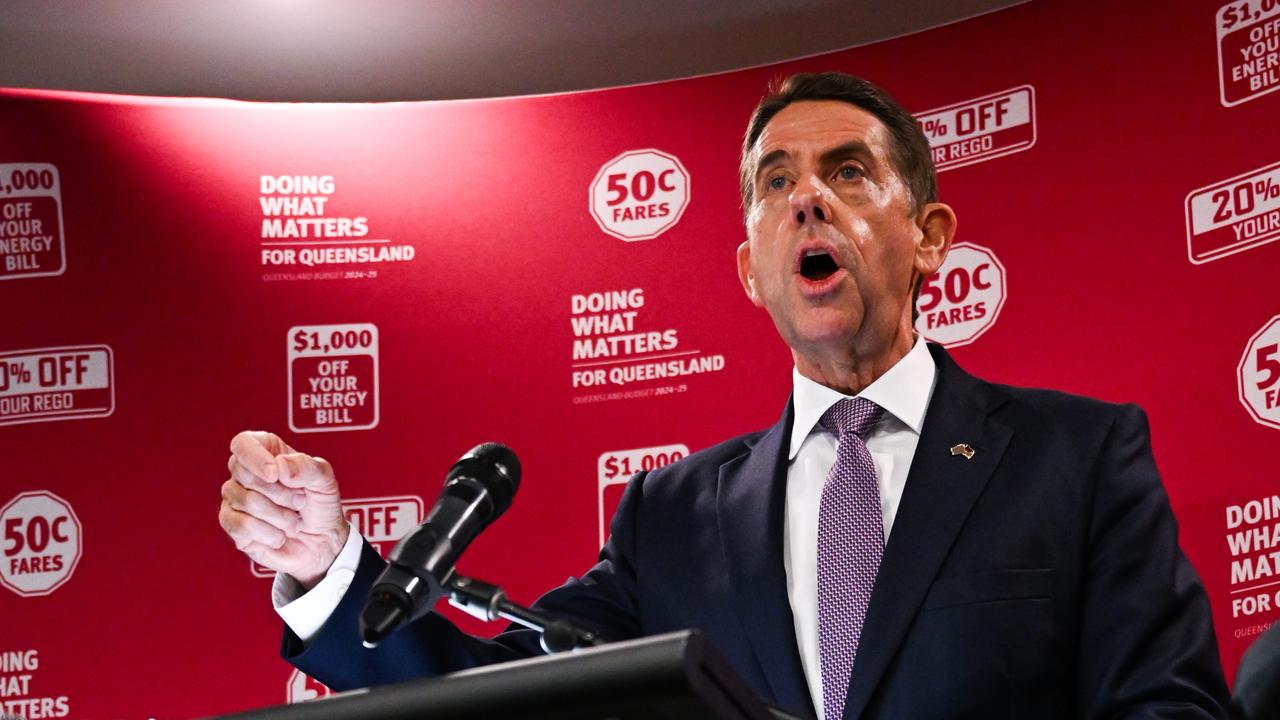
State’s $11.2bn pre-election cash splash
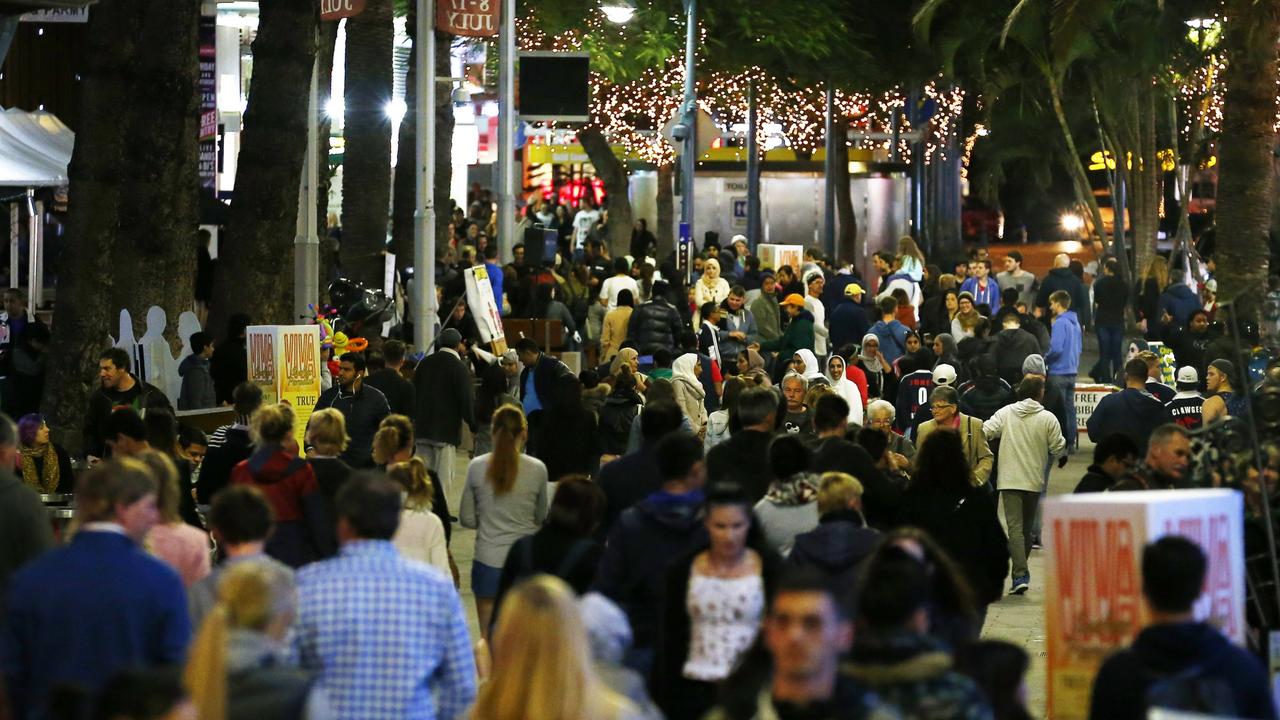
State’s push to revitalise night life
Queensland Treasurer Cameron Dick has handed down his fifth budget, revealing a raft of cost-of-living relief measures for Queenslanders to the tune of $11.2bn.
A major feature is a $1000 rebate on electricity bills that will be coupled with a $300 rebate announced by the federal government and paid quarterly.
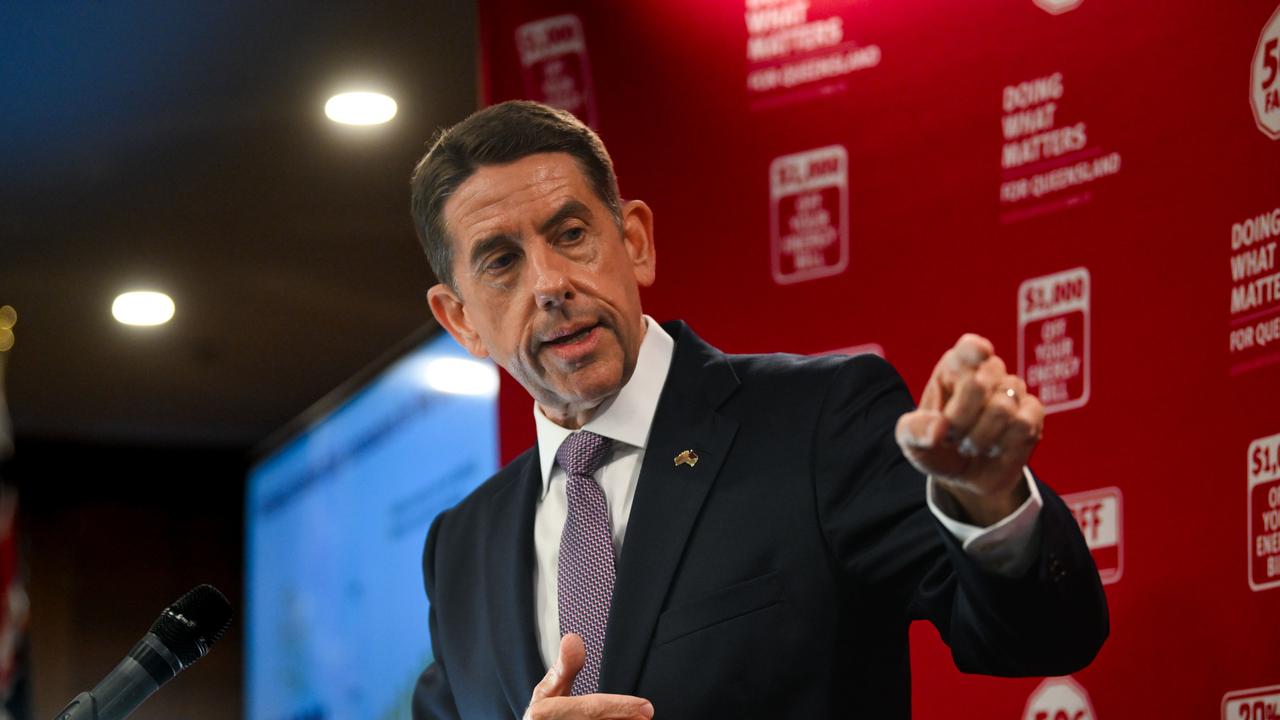
However, the deficit is forecast to blow out to $2.6bn
Here’s a breakdown of the major winners and losers:
Train, bus and rail fares will be slashed to a 50c fee over a six-month trial, which the government says aims to ease cost-of-living pressures and the traffic gridlock plaguing the state’s roads.
Premier Steven Miles says the initiative is “as close to free as you can get” – covering trains, buses, CityCat ferries and the Gold Coast light rail.
Under the current fares, people living in Robina on the Gold Coast and commuting to Bowen Hills in inner-city Brisbane four days a week pay $91.68 per week or $11.46 per trip.
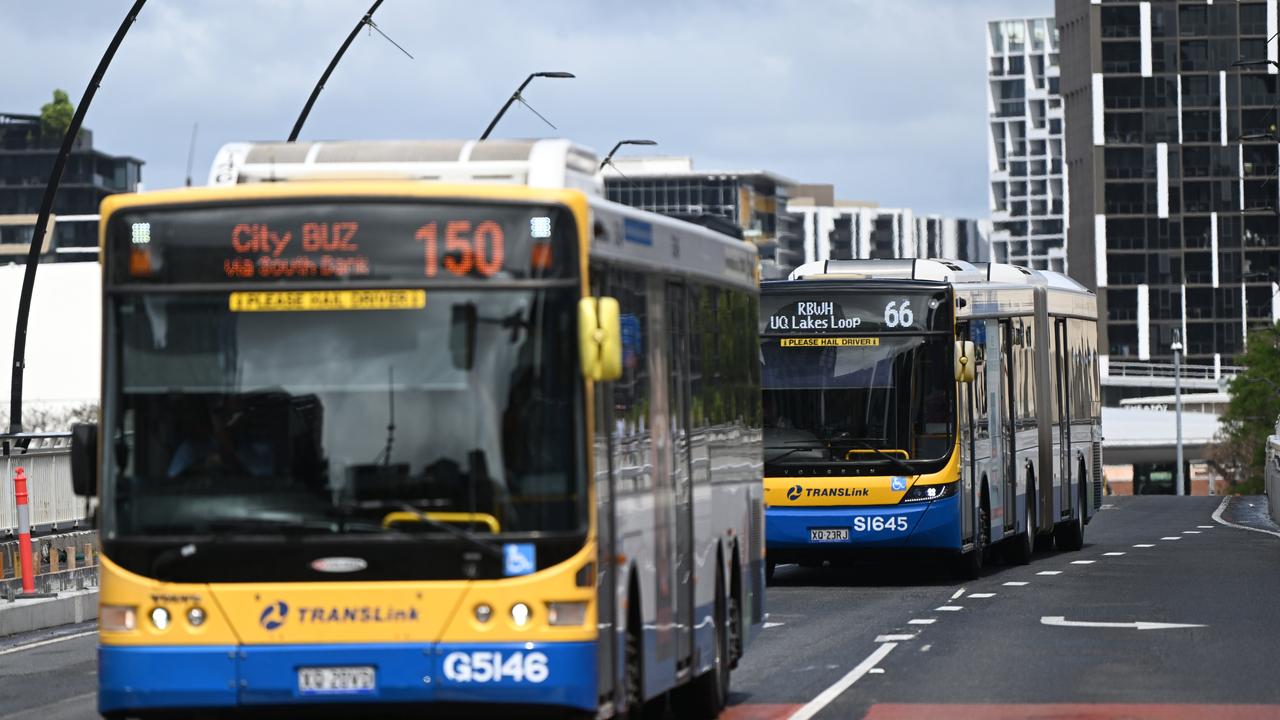
When the new fares are rolled out, this will be slashed to just $4 per week, saving $2104.32 over six months.
The trial will cost $150m.
Every household will get $1000 knocked off their electricity bill from July 1 – part of the government’s $2.5bn spending splurge.
The cash splash was announced before the federal government said it would give all Australian households an extra $300 off over four instalments across the financial year.
Eligible seniors, pensioners and concession card holders will receive a further $372 off.
“Our No.1 priority is providing cost-of-living relief,” Mr Miles said when the policy was first announced.
First-home buyers
Queenslanders trying to get a foot into the property market have secured a massive win with an increase to the stamp duty discount.
Now, the threshold for the first-home owner concession on stamp duty will increase from $500,000 to $700,000, with the concession then phasing out up to values of $800,000.
The first-home vacant land concession threshold will also increase – rising from $250,000 to $350,000.
The concession then phases out up to values of $500,000.
Twenty per cent will be knocked off rego payments for Queenslanders for 12 months, saving more than $100 per motorist.
Under the changes, a 12-month registration bill for a private-use four-cylinder vehicle will be reduced by almost $85, bringing registration fees down to $338.75, excluding CTP.
For vehicles registered on a pensioner concession, the reduction will be nearly $50 – bringing down the total to $194.50, excluding CTP.
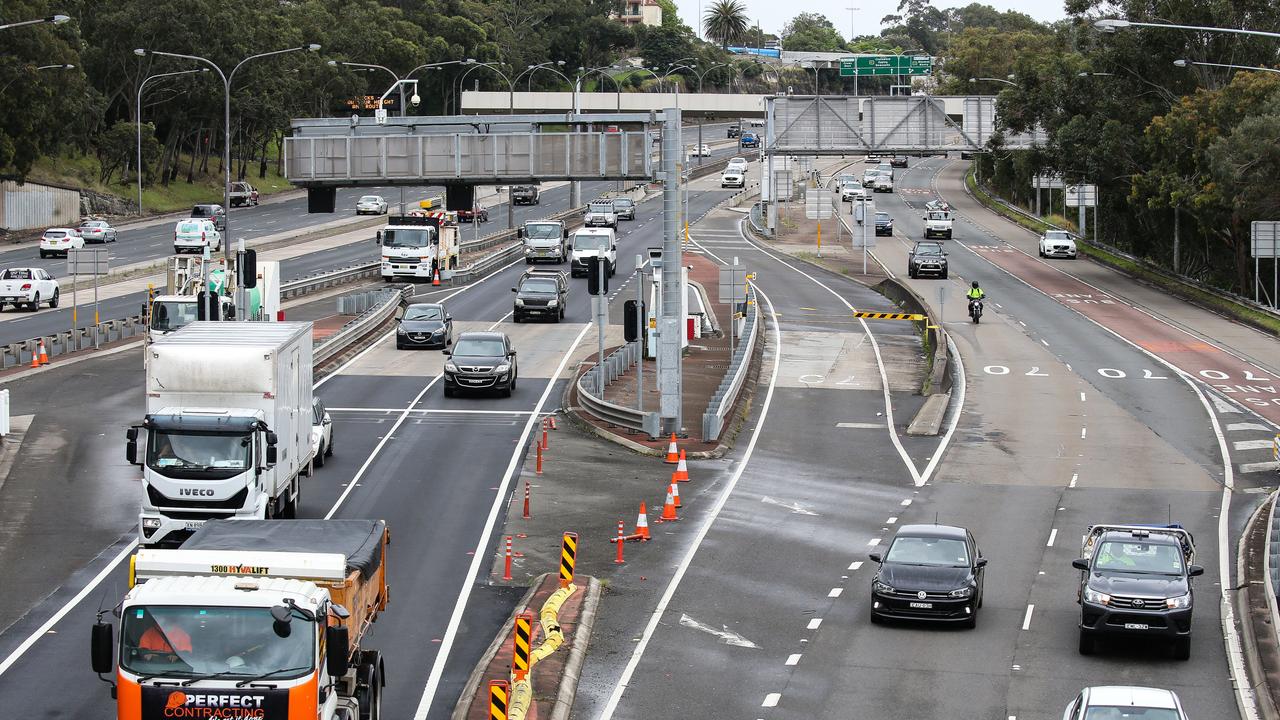
It will apply to all light vehicle registrations from September 16.
Combined with existing concessions, it means some car owners will get as much as 70 per cent off.
“This initiative will save the 5.7 million light car owners here in Queensland hundreds of dollars over the 12 months – dollars that could be spent on groceries, rent, the mortgage or put into savings,” Mr Miles said in a statement on Saturday.
The reduction is in addition to a freeze on rego costs in December last year.
Sporting kids
Families are getting a $200 voucher for every child aged between five and 17 years to participate in junior sport at a cost of $40m.
Under the current FairPlay program, parents, carers or guardians can apply for a voucher valued up to $150 for their child to use towards their sport and active recreation membership, registration or participation fees.
The government is expanding that program by increasing the value of the voucher to $200 and kicking up the total number of vouchers from 50,000 to 200,000.
Since the program began in 2019, more than $30m has been redeemed by activity providers, with more than 210,000 vouchers used by eligible families, Mr Miles said on Saturday.
Thousands of additional teaching support staff will be hired and more professional resources allocated.
Of this, $1bn will be delivered over five years for improved education and “better learning environments”.
Two thousand extra teaching support staff would help students living with disability learn easier, Mr Miles said.
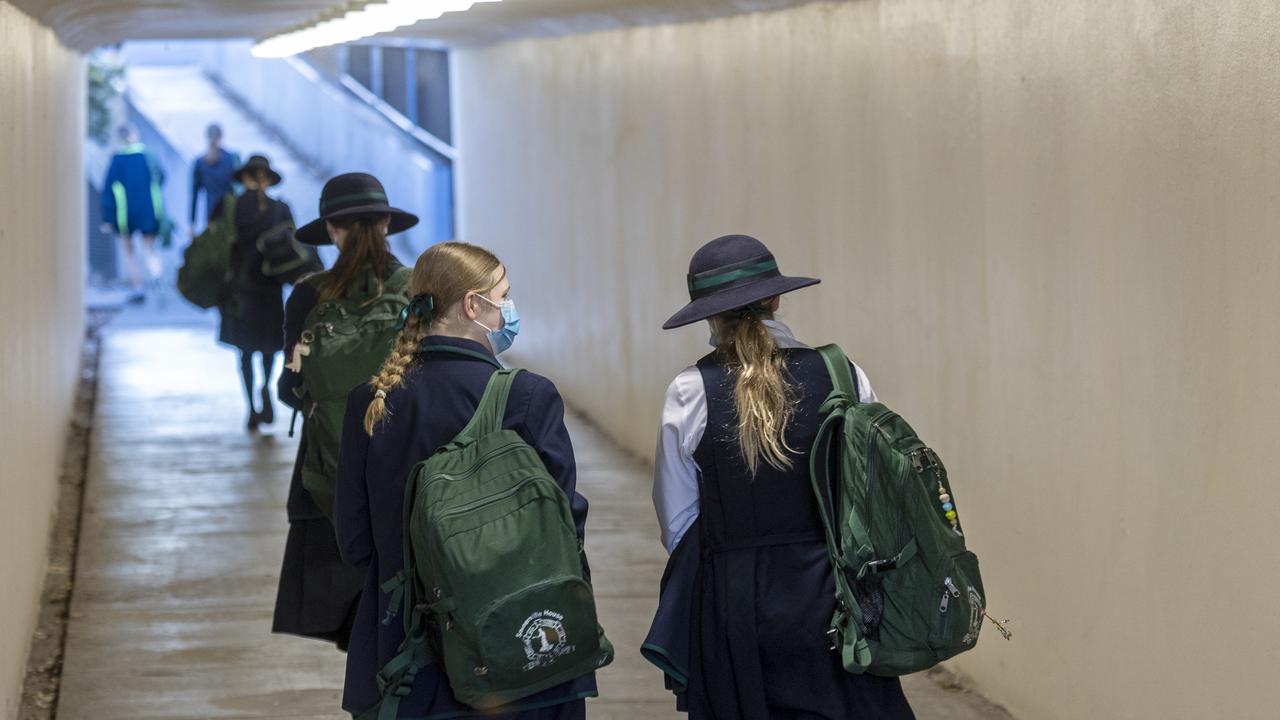
More than $196m will be spent on measures like increasing free kindy hours to 30 hours per week for four-year-olds in discrete communities, funding 36 additional early childhood co-ordinators and another 84 family support co-ordinators to work with high-needs state primary school children in 219 state primary schools.
Other highlights include:
- • $15m in funding for the School and Community Food Relief Program, including $10.7m for the Department of Education to deliver food programs in schools from term 3, 2024, in addition to the $2m in funding for food programs received in term 4, 2023
- • GPs in Schools Program – $21m over four years for the Department of Education to continue the GPs in Schools Program, providing 50 Queensland state schools with secondary-aged students with access to a free primary healthcare service one day per week
- • $65.5m over three years for additional projects under the Playgrounds and Tuckshops Program
- • $151m for new school projects including a new primary school in Park Ridge and the new secondary school in Collingwood Park, both set to open in 2025.
- • $4.9m over two years, 2024-25 to 2025-26, to continue to deliver the Homework Centre program in schools. This program provides funding for on-site support for students in up to 120 state schools to complete homework outside of school hours
- • $500m over four years to plan and deliver high-quality learning environments to meet enrolment needs.
Foreign buyers While the state government has earmarked relief for first-home buyers, foreign investors will be slugged more on stamp duty when they next make a purchase.
That’s because the state’s foreign investor land tax surcharge has increased to 3 per cent to offset the stamp duty discount being granted to Queenslanders.
The transfer duty surcharge has also been increased to 8 per cent.
Coal and gas lobby
The lucrative royalty system on Queensland coal and gas is not going anywhere, with budget papers revealing the progressive royalty tier system is expected to deliver a further $3.6bn in revenue towards the end of this financial year.
However, that impact is expected to decrease “significantly” over the forward estimates.
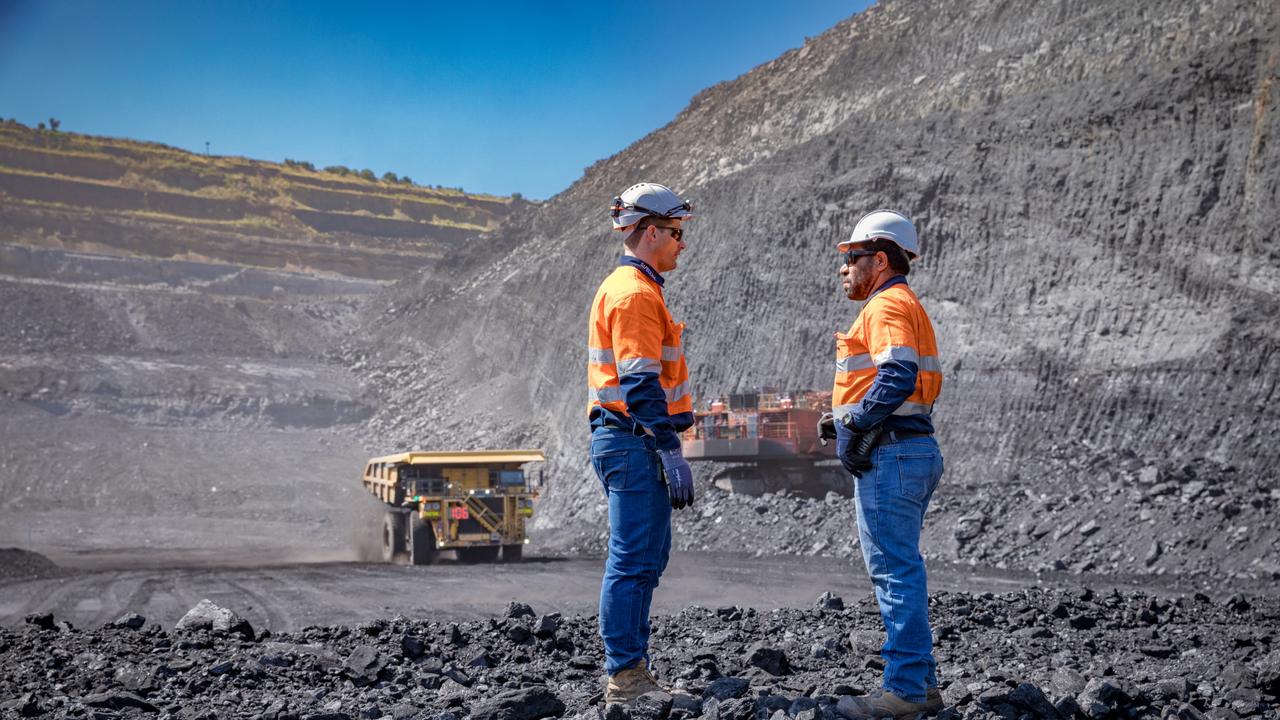
Coal prices are forecast to normalise to about $1.3bn in 2024-25 and at an average of about$485m per year over the three years ending 2027–28.
“The new tiers will mean Queenslanders will also receive a fair share of the coal companies’ extraordinary revenues during any future periods of unexpectedly high coal prices over the longer term,” the budget papers state.
The raft of cost-of-living relief measures are sure to lighten the burden for renters doing it tough in the Sunshine State.
But aside from those, no specific policies or funding measures geared towards renters were outlined in the Queensland budget.
The budget did contain one specific point in regards to the work the government was doing for renters, however.
“The government has strengthened renters’ rights through the introduction of the Residential Tenancies and Rooming Accommodation and Other Legislation Amendment Act 2024, which includes applying the annual rent increase frequency limit to a rental property rather than tenancy to give a fairer go to Queenslanders who rent.”
Small businesses
Many of Queensland’s small businesses have also missed out on extra funding, with no other significant packages aside from the launch of the Queensland Small Business Strategy 2024-2027.
About 205,000 business will still get $650 knocked off their electricity bills.
It’s led to leading accounting body CPA Australia saying the business sector would feel “overlooked” and calling the sparse announcements “disappointing”.
“Every Queenslander knows a small-business owner – and knows the financial pressures they’ve been facing in recent times, especially those in construction, hospitality and other energy-intensive sectors,” CPA Australia business investment and international lead Gavan Ord said.
“The budget missed an opportunity to expand measures that boost business growth and productivity, which would benefit all Queenslanders.”
University students
Aside from the signature 50c fares and more free TAFE courses, few other sweeteners have been added for university students in this budget.
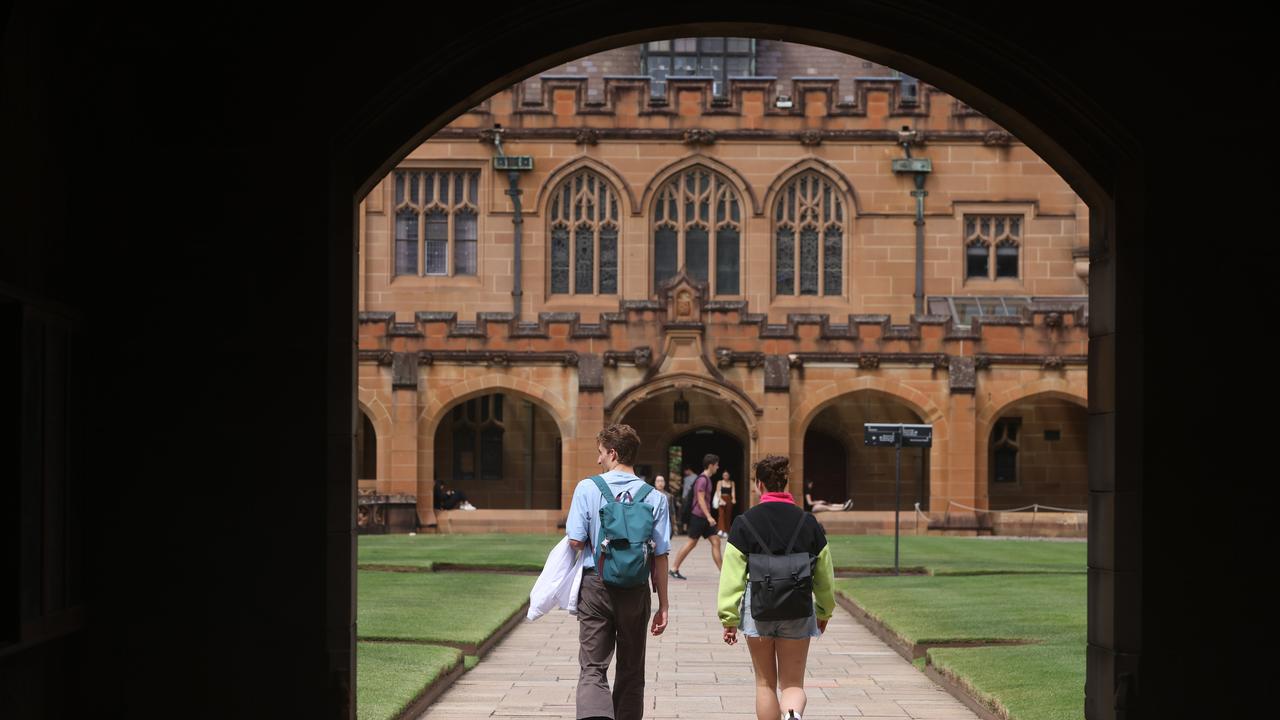
National Firearms Registry
Queensland has agreed to fund the costs associated with its support for the National Firearms Registry, but no specific figure has been revealed in this budget.
More Coverage

The program, developed in response to the horrific massacre at Wieambilla, already has unanimous support from other state and territory governments and the federal counterpart.
Federal funding of $160m was earmarked for the program earlier this year.
According to budget papers, Queensland’s funding contribution is not available for publication due to “being subject to ongoing negotiation” between the other governments.
Premier Li Qiang will be the most senior Chinese leader to visit Australia since 2017 when he lands in the country on Saturday.
One state is spending billions on cost-of-living relief in its budget as the government prepares for a bruising election in October.
One Aussie state is making a major push to revitalise its night-life and get young people out and about – announcing a new commissioner role to help its struggling 24-hour economy.
- MyServiceNSW
- Manage account
- Logout of MyServiceNSW
Testing and what to do if you have COVID-19
How to get a test if you think you might have COVID-19, and what to do if you test positive.
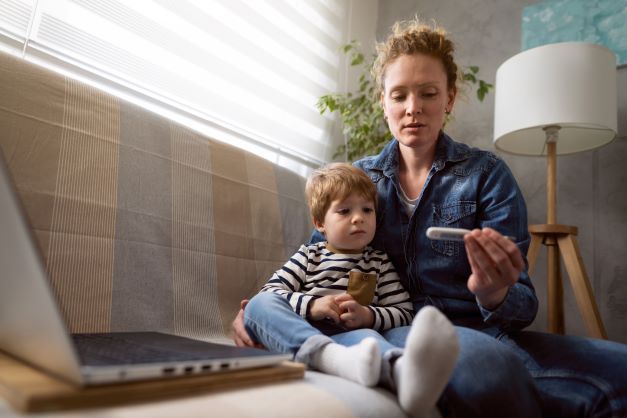
COVID-19 update – 6 June 2024
COVID-19 is at high levels in the community.
Read the latest data from NSW Health .
Continue to protect other people. Please stay home if you have any cold or flu symptoms. Wear a mask if you need to leave home.
Learn how to keep yourself and others COVID-safe .
Getting a test for COVID-19
Which covid test should i do.
Guidance on which test is best for you.
Information for people exposed to COVID-19
Understand your risk and what you can do to protect yourself and your loved ones.
Symptoms and how it spreads
Learn about the symptoms of COVID-19, when they appear and how it spreads.
Advice for higher risk groups
Some people are at higher risk of severe illness from COVID-19. Find information on how to protect yourself and others from becoming very unwell.
If you're at higher risk of severe illness, talk to your doctor about PCR tests.
Managing your COVID-19 illness
What to do if you test positive.
Advice on how you can safely manage mild symptoms at home.
Antiviral medicines
Find out if you're eligible for antiviral medicines and how to access them.
Information on long-term symptoms you may experience due to COVID-19, and where to seek support.
COVID-19 guidance for families
Advice for parents and carers on COVID safety in schools and early childhood education services.
Advice for workers
What to do if you test positive and information about returning to work.
Guidance for businesses
What you need to do as an employer to manage the risk to colleagues and customers.
Easy Read and in-language resources
Easy read information on covid-19, in-language and translated covid-19 support, contact us and find translation help.
- Service NSW – information and advice for NSW residents and businesses. Phone 13 77 88
- Healthdirect – government-funded 24-hour health advice. Phone 1800 022 222
- Disability Gateway – information for people with disability. Phone 1800 643 787
- Mental health support, services and programs
- Service NSW Savings Finder – find rebates and vouchers relevant to you
- Business Concierge – tailored advice from Business Connect advisors. Phone 13 77 88
- Translating and Interpreting Service (TIS National) – free service provided by the Australian Government. Phone 13 14 50

IMAGES
COMMENTS
Concessions, rebates and assistance ... Concession car parking at NSW Health public hospitals. Life Support Energy Rebate (retail customers) ... Travel and accommodation allowance for apprentices and trainees. Recreation and leisure. National Parks annual passes - seniors discounts.
You only need to apply if you're applying for the School Drive Subsidy for the first time. The student must: be a resident of NSW, or an overseas student eligible for free government education. be aged 4 years 6 months or older and enrolled full-time in school or TAFE (pre-school children are not eligible).
$2.50 all day travel with the Country Pensioner Excursion ticket for booked NSW TrainLink Regional services; $2.50 all day travel with the Regional Excursion Daily ticket on local buses; Half price fares on NSW TrainLink Regional services. Check NSW TrainLink fare rules for pensioners.
Helping you find NSW Government rebates and vouchers that are relevant to you. Savings Finder Helping you find NSW Government rebates and vouchers that are relevant to you. ... Free and discounted travel on NSW TrainLink Regional services for pensioners. National parks discount for seniors. Seniors Card holders can get 20% off all annual passes.
You may be eligible for NSW Government rebates and vouchers to help reduce your transport, driving and fuel costs - including public transport concessions, toll relief and pensioner travel vouchers. ... There are On Demand services operating around NSW. You might earn travel credits when you transfer between Opal and On Demand services ...
NSW TrainLink fares and bookings. Eligible seniors, pensioners and concession card holders are entitled to: 50% off ordinary Adult peak season Economy and First Class fares; $2.50 unlimited daily travel on Regional train and coach services with a pre-booked Country Pensioner Excursion ticket; Pensioner Travel Vouchers are available for:
Pensioner travel vouchers. If you hold a NSW/ACT pensioner concession card or a NSW War Widow/er transport concession card, you're entitled to 4 Pensioner Travel Vouchers each calendar year. You can use the vouchers for 2 return or 4 single trips.
The regional seniors travel card was a 2019 election commitment by the NSW Government. Seniors can apply at Service NSW: online at service.nsw.gov.au. call 13 77 88. visit a Service NSW Service Centre. FOR FURTHER INFORMATION. More information is available at www.service.nsw.gov.au.
Concessions, rebates and assistance. Transport concessions, cards and passes Listen. Opal cards. ... Apply for a veterans or war widow/ers travel concession card. Apply for a school travel pass. Guides. Public transport concessions and subsidies Back to top. Last updated: 28 December 2023 ...
IPTAAS provides financial assistance from the NSW Government towards your travel and accommodation costs when you need to travel long distances for specialised health treatment that is not available locally. Make a claim now ... travel from their residence for treatment at least 100km (one way), or at least 200kms in a week by making multiple ...
Select the 'Claim rebate' button. Follow the prompts to claim your rebate. Once your claim has been approved, you'll receive your payment within 10 to 15 business days. If you'd like to follow a step-by-step guide, watch the video. Note: The video refers to 2022-23 rebate amounts.
The NSW Gas Rebate helps eligible concession cardholders pay their natural gas or bottled Liquefied Petroleum Gas (LPG) bills. The NSW Gas Rebate is $121 per embedded network (on-supply) or bottled LPG household, per financial year. If you live in an embedded network (on-supply) or if you buy or refill bottled LPG, you can apply for the rebate.
School Drive Subsidy contributes to the cost of transporting a child by car to school or the closest transport stop. To be eligible, your child must: be a resident of NSW, or an overseas student eligible for free government education. be aged 4 years 6 months or older and enrolled full-time in school or TAFE (pre-school children are not eligible)
Energy rebates up. While the Regional Seniors Card is all but gone, CPSA does welcome increases in NSW energy rebates. The Low-Income Household Rebate as well as the Medical Energy Rebate will go from $285 to $350. The Seniors Energy Rebate for self-funded retirees will rise from $200 to $250 and the Life Support Energy Rebate has also received ...
All IPTAAS forms. Form 1 Travel and accommodation claims download. Form 2 Additional travel and accommodation download. Form 3 Application to bulk bill accommodation download. Form 4 Application for advance travel assistance download. Form 5 Referral details for online users download. Form 6 Travel and accommodation assistance for donors download. Did you know you don't need to complete all ...
The state government will allocate an extra $149 million in Tuesday's budget for people in regional areas who need to travel for medical treatment. ... 26,000 people in NSW accessed the rebate ...
Incentives available from 1 November 2024. If you're eligible, you could access incentives: between $1600 to $2400 off the up-front installation costs of a battery for homes and businesses with existing solar, depending on the size of the battery. between $250 to $400 for connecting your household or business battery to a Virtual Power Plant ...
Isolated Patients Travel and Accommodation Assistance Scheme (IPTAAS) Form 2. Additional Travel and Accommodation Claims Page 1 of 3 There are two ways to apply to IPTAAS ... NSW Health may make relevant enquiries to assess this application and make sure I receive the correct subsidy. I may be audited if my practitioner or health service did ...
as a military personnel passenger on a military transport, claim a TRS refund. If you are calling the TRS from outside Australia: +61 2 6245 5499. You can claim a refund of the goods and services tax (GST) and wine equalisation tax (WET) that you pay on goods you buy in Australia.
The Australian Government is providing $3.5 billion to extend and expand the Energy Bill Relief Fund and provide electricity bill rebates to all Australian households and eligible small business electricity customers in 2024-25 to ease cost of living pressures. This builds on the $1.5 billion available for energy rebates provided by the Commonwealth in 2023-24 under the existing fund.
Queensland Labor's state budget for 2024 has been handed down. Here's the full breakdown of the major winners and some of the losers. A major feature is a $1000 rebate on electricity bills ...
Contacts and enquiries. Service NSW - information and advice for NSW residents and businesses. Phone 13 77 88. Healthdirect - government-funded 24-hour health advice. Phone 1800 022 222.
Implementing simple and free energy-saving measures can also significantly reduce household winter energy consumption and translate to real savings on electricity bills. Measures include: Switching off appliances at the wall to use 1 to 5% less energy. Washing clothes in cold water. Closing curtains to keep the heat in and the cold out.